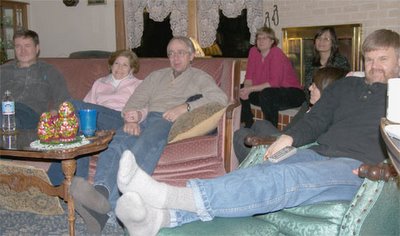A couple weeks ago, I attended a luncheon at Taylor University-Fort Wayne designed for local ministers and laypersons. I attended with my pastor, Tim Hallman, and my fellow elder, Russ Baker.
The speaker was Dr. Eugene Habecker, president of Taylor University. I knew him well when he was president of Huntington College. We served on a variety of committees together, and I interviewed him and his wife several times. Great folks. Nice to have them back in the area.
He spoke on leadership, and said many memorable things. I’ll mention one. He said, “Everybody is motivated to do something.” A role of leadership, he said, is to “unlock” whatever that will motivate a person.
Even the most tried-and-true pew-sitter in your congregation can be motivated. You just need to find what it is that really turns their crank. This is part of the emphasis behind spiritual gifts tests. You learn what someone is spiritually gifted to do, and then put them in a role which makes use of that gift. It then become fulfilling to them. When I was fresh out of college, I spent a year teaching Wednesday night kids in grades 4-6. I did okay, and I guess I was motivated to try my best. But that’s not where I belonged.
There are people at Anchor, as in any church, who are minimally involved. What does it take to turn them into active laypersons? Is it just a matter of matching their gifts with a particular role? It’s probably not that simple. But whatever the answer is, we (like all churches) need to figure it out. Because it doesn’t help us to have capable people sitting on the sidelines, watching a few people kill themselves with over-involvement.
What motivates me? Hmmmm. Nobody needs to twist my arm to play in the worship team. I’ve done many things in churches, and many of those things have been enjoyable and rewarding. I’m not sure a spiritual gifts test has ever really determined, to my satisfaction, what I should be doing in a church. I just want my church to move forward, and I WILL work my butt off to help make it happen. I guess I do enjoy jumping into gaps, plugging holes, spotting things that need to be done and helping get them accomplished. That sounds a bit like a savior complex. Is that a bad thing?







